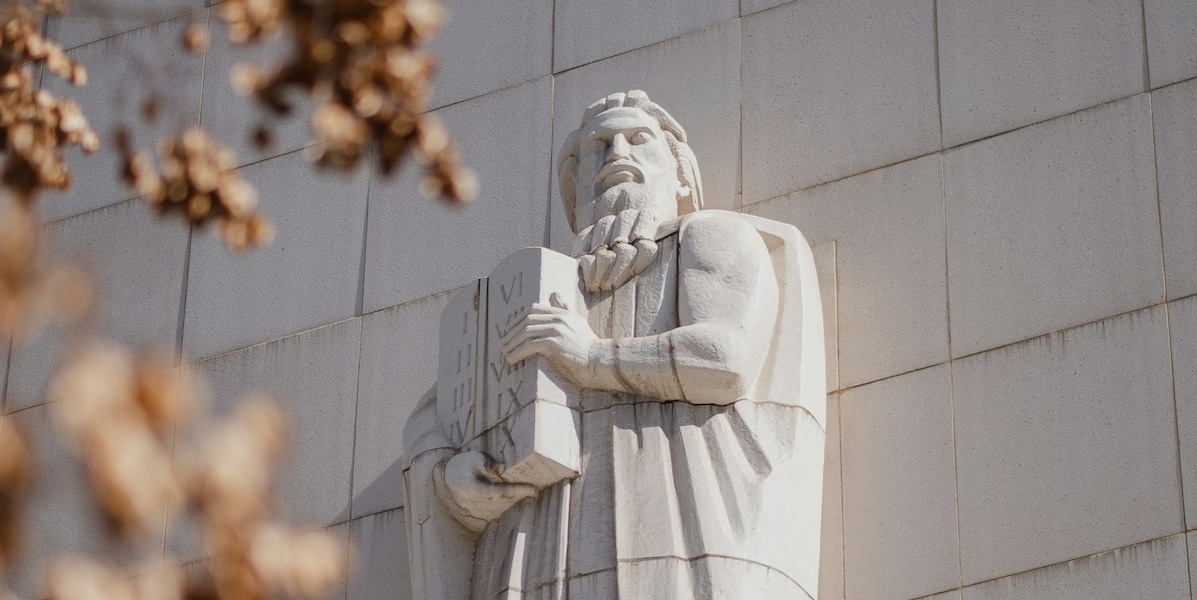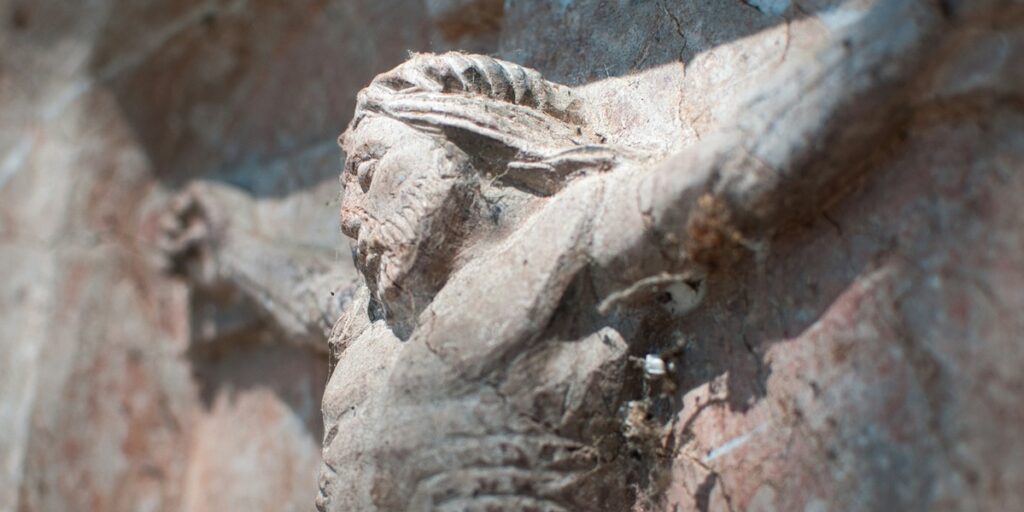This may sound strange because Jesus in Matthew 5:17 states, “Do not think that I came to abolish the law or the prophets; I have come not to abolish but to fulfill.”
But does that mean that Jesus fulfilled every law? Some seem to think so, but Jesus didn’t fulfill every law. In fact, there were times that he intentionally stopped people from following the law when the law led to harming another person.
And that’s the point. Jesus deconstructed the law because he knew that the human being is more important than the law. Or, put another way, the fulfillment of the law is enacted when we use the law to love, not to harm, our neighbors and ourselves.
There are other examples, too. When it comes to the law, some claim that the only laws that really matter are the 10 Commandments. This seems like a good idea. After all, God wrote them with God’s finger. And there are 613 commandments in the Hebrew Scriptures. Narrowing them down to 10 makes following the law seem more manageable.
But the fact is that even Jesus didn’t follow all of the 10 Commandments.
And it’s likely that you don’t either. I sure don’t.
The fourth commandment is “Remember the sabbath day, and keep it holy. For six days you shall labor and do all your work. But the seventh day is a sabbath to the Lord your God; you shall not do any work—you, your son or our daughter, your male or female slave, your livestock, or the aliens resident in your towns. For in six days the Lord made heaven and earth, the sea and all that is in them, but rested on the seventh day; therefore the Lord blessed the sabbath day and consecrated it.”
The command to rest on the Sabbath is a big deal in the Bible. It created a pattern for all people and even animals. Nobody was to do any type of work on the Sabbath. Everyone, even animals, was to rest without doing work.
But Jesus deliberately broke the Sabbath law.
Luke 6 tells us two stories about Jesus breaking the Sabbath law. The first story states that Jesus and his disciples walked through grainfields on the Sabbath. They were hungry, so they plucked some grain and ate it. Some Pharisees asked, “Why are you doing what is not lawful on the sabbath?”
In the next story, Jesus cures a man with a withered hand on the Sabbath. This time, both scribes and Pharisees got upset with Jesus.
Jesus didn’t get into a debate with them about interpreting the Sabbath law. He didn’t defend himself by saying that he actually wasn’t “working” because working means something different from what the scribes and the Pharisees thought. Jesus didn’t wiggle his way out of this Sabbath law controversy with a game of semantics.
Instead, he relativized the Sabbath law. With the grain, Jesus referred to Leviticus 24:9 that stated only the priests could eat the bread of the Presence on the Sabbath.
But Jesus pointed out that David and his companions ate the bread of Presence on the Sabbath. And they weren’t priests. David broke the law, and yet was a man “after God’s own heart.”
Before Jesus healed the man with the withered hand, he knew the scribes and Pharisees were scandalized by the way he broke the Sabbath, so he asked them, “Is it lawful to do good or to do harm on the Sabbath, to save life or to destroy it?”
Jesus then healed the man and the scribes and Pharisees “were filled with fury and discussed with one another what they might do to Jesus” (Luke 6:11).
That’s how Jesus deconstructed the Sabbath law. That’s not to say that the Sabbath law is bad. It’s good. We all need a rest. And if Christians were really concerned about following the Ten Commandments, we would be demanding that no one in our culture works on the Sabbath.
That would mean radically transforming our economy so that everyone could afford to have a day of rest without working multiple jobs.
Jesus deconstructed the sabbath law, not by claiming that the scribes and Pharisees had the wrong interpretation of the law, but by claiming that he had authority over the Sabbath law. He told the Pharisees, “The Son of Man is lord of the Sabbath.”
Jesus wasn’t on a power trip when he claimed to be lord of the Sabbath. Instead, he was telling us that the human is more important than the law.
Alleviating human hunger was more important than following the Sabbath law.
Curing human affliction was more important than following the Sabbath law.
But in a way, by refusing to always follow the sabbath law, Jesus did fulfill the Sabbath law. Why? Because the Sabbath law was meant to provide people with rest. But people suffering from hunger cannot rest. People afflicted by disease cannot rest.
Jesus deconstructed the Sabbath law because for Jesus human welfare is always more important than the law. In other words, if certain laws don’t lead to greater human flourishing, then we shouldn’t follow them.
After all, for Jesus, all the law and the prophets come down to two laws – Love God and love your neighbor as yourself.





